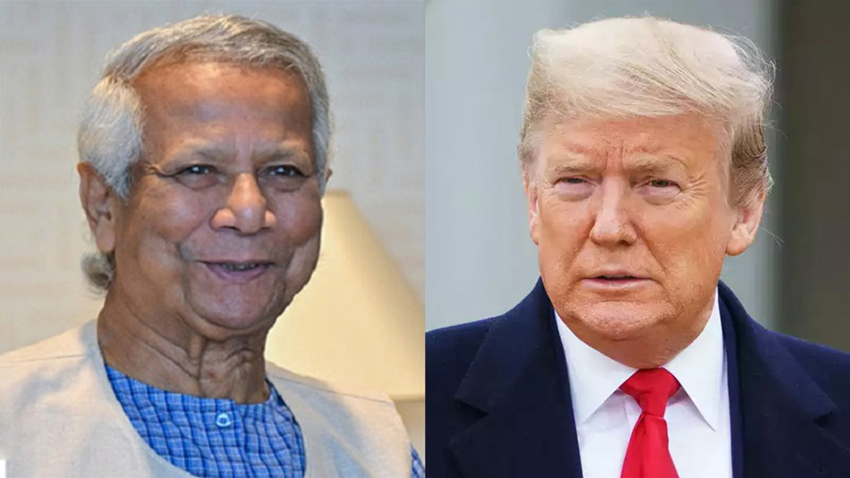ONLINE REPORT
The interim government of Bangladesh will send two formal letters to the United States administration within the next 48 hours in response to the recent imposition of a 37 percent tariff on Bangladeshi exports.
The announcement was made on Sunday by the Press Secretary to the Chief Adviser, Shafiqul Alam.
One letter will be from Chief Adviser Professor Muhammad Yunus to U.S. President Donald Trump, while the other will be from Commerce Adviser Sheikh Bashir Uddin, addressed to the United States Trade Representative (USTR).
Shafiqul Alam shared the information following a review meeting held at the office of the Economic Adviser at the Secretariat. The meeting, chaired by Economic Adviser Salehuddin Ahmed, was attended by four government advisers, four business representatives, ten secretaries, the Governor of Bangladesh Bank, the Executive Chairman of BIDA, and High Representative on Rohingya and Priority Affairs Dr. Khalilur Rahman, among others.
When asked what content the letters would include, the Press Secretary stated that discussions are ongoing and that input from all stakeholders present at the meeting has been considered. The letters will outline Bangladesh’s response and planned actions regarding the tariffs, emphasizing a business-friendly approach and aiming to safeguard the country’s trade interests.
“The letters will reflect Bangladesh’s commitment to mutually beneficial trade and will highlight steps being taken to protect and expand exports to the U.S., which remains the world’s largest consumer market,” Alam added.
Economic Adviser Salehuddin Ahmed outlined four key action areas for Bangladesh. First, the need to expand trade between the two countries; second, strengthening the competitive capacity of Bangladesh’s garment sector to make it more attractive to U.S. buyers; third, diversifying imports from the U.S. beyond just goods to include services; and fourth, eliminating non-tariff barriers both formally and informally.
Dr. Khalilur Rahman, the Chief Adviser’s High Representative on Rohingya and Priority Issues, noted that he had spoken to Bangladesh’s Ambassador to the U.S. on Saturday. The ambassador had met with officials at the USTR office and conveyed that the U.S. side appeared receptive to Bangladesh’s concerns. Rahman expressed hope that the government would finalize its action plan within a day or two.
Planning Adviser Dr. Wahiduddin Mahmud stressed the need to protect the country’s leading export sector, ready-made garments. He emphasized that workers’ wages in this sector are already among the lowest globally and cannot be reduced further. Therefore, the focus must be on increasing productivity and removing non-tariff barriers to enhance competitiveness.
Business leader Syed Nasim Manzur welcomed the interim government’s swift and coordinated response, stating that it has brought a sense of relief to the business community. He emphasized the importance of timely action to avoid setbacks and suggested exploring what additional goods or services Bangladesh could import from the U.S. to create a more balanced trade relationship.
Highlighting the need for diversification, Manzur also noted that there is a world of opportunity beyond garments for Bangladesh, and it is time to start discovering those markets.


